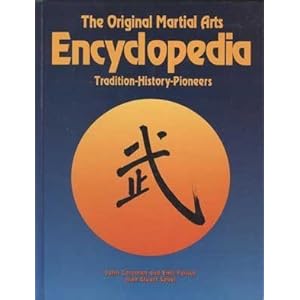 |
| Rob Redmond |
It was Rob's writing that encouraged me to examine my romanticized preconceptions about the martial arts -- about what they are, about what they can do, and about what my job is as a practitioner -- and I am better for it. I might have quit training long ago if I hadn't given up looking for things in the martial arts that aren't there.
I have made extensive use of Rob's words here on this blog, and I suspect I have sometimes misused them (especially in my posts from 2010 -- I grow increasingly dissatisfied with much of what I wrote that first year). Were Rob to read this whole blog, I'm not sure he would be happy with all my uses of his words, but I hope he would at least take some satisfaction in how much he has affected me and my training and writing.
I visited 24FC for the first time in a couple months last night, and was saddened to discover that the site had been archived and Rob would no longer writing new articles. Barely a day after I had last visited, digging up a quote for one of my blog posts, Rob had said goodbye:
I think 18 years of logging in here and cleaning out the spam is long enough, don’t you? I’m 45. I started this site when I was in my 20′s. Since I started it, I’ve built two houses, owned five cars, and have had two sons, one of whom is in middle school now. I have other things to focus on. I’m writing some sci-fi stories. I volunteer in the Boy Scouts of America heavily. I’ve taken up mountain biking and running for most of my exercise.
The people who were so obnoxious about doing karate a particular way have mostly died or have been discredited by the rise of MMA. Where once was a world-wide panic over “the internet black belt” burning the temple of Shotokan to the ground, today there is mostly just a field with some kids playing in it and no one really even knows what happened.
I suppose this is a happy ending for Rob. He has spent the last 18 years trying to teach the Western world what his instructor in Japan taught him, and he seems to see no need for him to continue. A teacher with nothing left to teach, I think, is a teacher who has succeeded.I’m looking around, and I think we’re done here. Time to lower the flags of discontent, and move on to other projects.
With that in mind, rather than using this space to lament the end of 24FC, I'd like to share a list of lessons that 24FC taught me:
- Contracts should be avoided. No matter how good a club is, a contract can only really do one thing: force you to keep paying for something after you no longer want it or can no longer get it.
- A martial art is no more moral or spiritual than the person practicing it. By extension, martial arts experience does not make someone a moral or spiritual authority.
- Martial arts ranks don't mean a whole lot. Those who ascribe a great deal of meaning or importance to ranks are probably doing so for the sake of their egos, their wallets, or both.
- A martial artist (especially an adult) has the right to decide what he wants out of his training, and is not obligated to have the same goals as his instructor or anyone else.
- A martial art isn't a person with a will, feelings, or a philosophy. A person who speaks on behalf on an entire art (e.g., "This is what aikido is all about," or "That is bad for taekwondo!") is really only speaking for himself and trying to impose his own will, feelings, and philosophy on it. His art doesn't care and never authorized him to be its spokesperson.
- Learning a martial art is not the same thing as learning self-defense, and most of the people trying to sell the martial arts as self-defense systems know nothing about real self-defense.
- None of the practices martial artists treat as sacred traditions are sacred, and most of them aren't particularly traditional, either.
- Static stretching should be done after training, not before.
- Martial arts training, in the grand scheme of things, isn't all that important.
In hindsight, I feel like these things should have been obvious to me from the beginning, but it took Rob's unflinching and uncompromising writing to make me see what was right in front of me. Reading the comments on his final post, I see that my experience is not unique. Rob changed a lot of minds during the long run of 24FC.
For those of you who want to keep following Rob, he has started a 24 Fighting Chickens page on Facebook. He presumably won't be writing long articles anymore, but there will still be some small doses of Rob to be had there. And of course, all of the old 24FC stuff is still up.
Rob, you don't know me, and I'm pretty sure you've never read this blog. For what little my thanks are worth, thanks. And good luck in your future endeavors.


